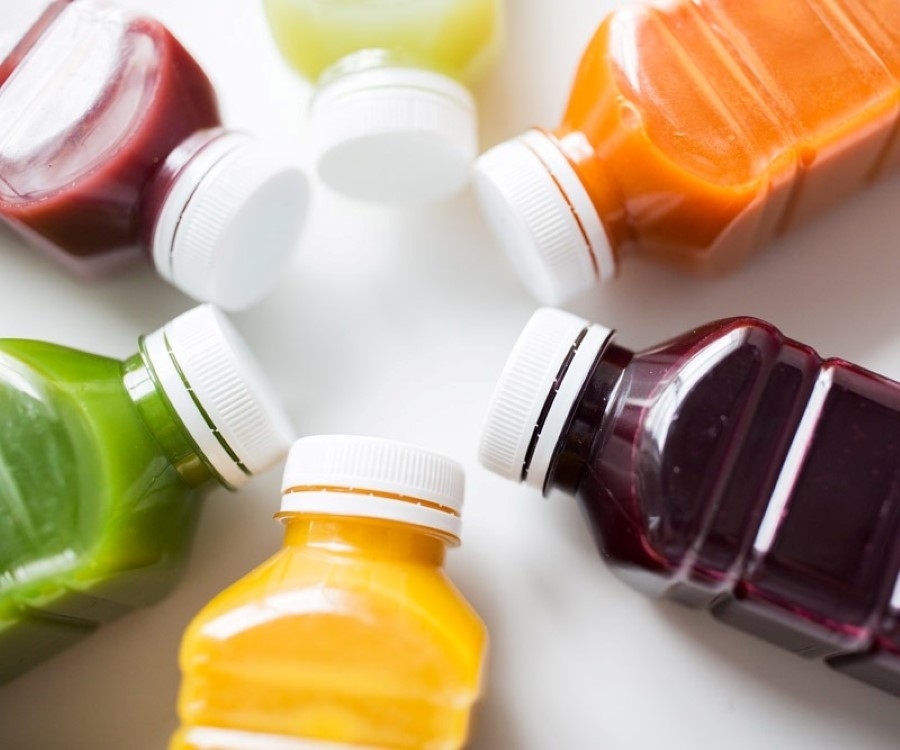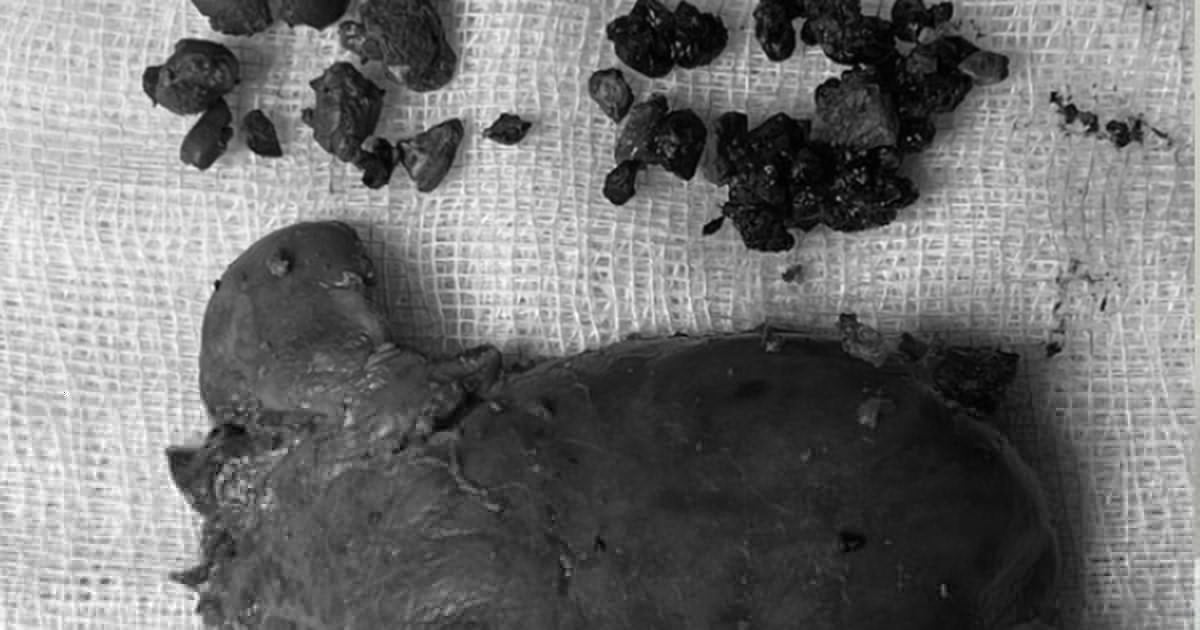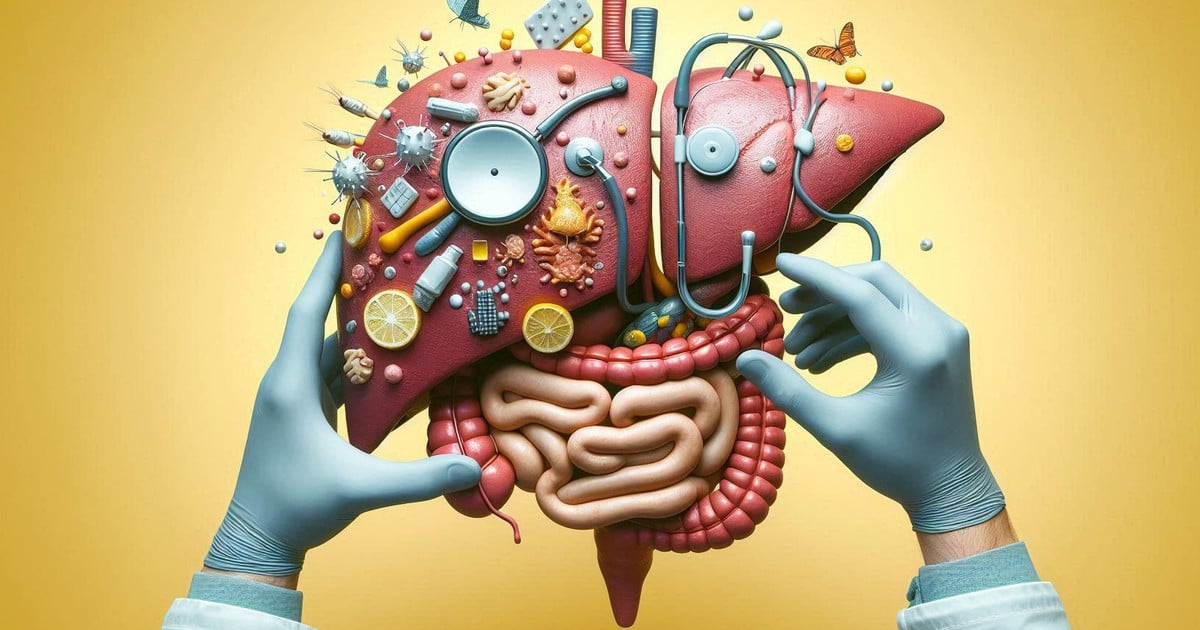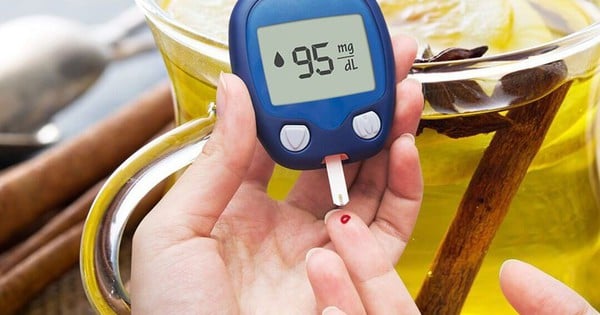Alcohol is harmful to the liver
The liver, the largest internal organ in the body, plays an important role in metabolizing nutrients, removing toxins and synthesizing proteins. However, when we drink alcohol, the liver has to work overtime to process the alcohol intake, leading to serious damage.
Specifically, the process of metabolizing alcohol in the liver creates acetaldehyde, a toxic substance that causes inflammation and destroys liver cells. Long-term alcohol abuse causes the liver to be constantly exposed to acetaldehyde, causing a series of health problems, from mild to severe such as fatty liver, hepatitis, cirrhosis and more dangerously, liver cancer.

Many popular drinks are extremely harmful to the liver. Photo: Health line
Carbonated soft drink
Carbonated soft drinks often contain very high levels of fructose. Fructose is a simple sugar that is metabolized primarily in the liver when it enters the body. However, unlike glucose, fructose is not used immediately by the body for energy but is instead converted into triglycerides. This fat gradually accumulates in the liver, leading to fatty liver, hepatitis, and cirrhosis over time.
In addition to fructose, carbonated soft drinks also contain a large amount of additives, coloring agents, and artificial flavors. These substances not only do not provide nutritional value but can also cause many negative effects on health such as damaging liver cells, causing liver dysfunction, and increasing the risk of liver cancer.
Bottled fruit juice
Fruit juice is often considered a healthy option, providing essential vitamins and minerals to the body. However, this is only true for fresh fruit juice, squeezed directly from the fruit and consumed immediately. Bottled fruit juice, although convenient and has a long shelf life, has many potential health risks, especially for the liver.
The main problem is that to enhance the flavor and extend the shelf life, manufacturers often add large amounts of sugar and preservatives to bottled juices. Drinking too much canned fruit juice can cause weight gain, increase the risk of fatty liver and other diseases.

Bottled fruit juice poses many risks to liver health. Photo: Getty Images
Milk tea
A cup of milk tea may seem harmless, but it actually contains an alarming amount of sugar and fat. On average, a medium-sized cup of milk tea can contain up to 50-70g of sugar, far exceeding the WHO's daily recommended amount (about 25g). This amount of sugar mainly comes from refined sugar, fructose syrup, and sweet toppings such as tapioca pearls, jelly, pudding, etc.
In addition, milk tea also contains high fat content, coming from full-fat milk, cream powder, and fatty toppings such as cheese, cream cheese... Consuming too much sugar and fat over a long period of time can lead to many serious health problems. Drinking milk tea regularly can cause weight gain, increase the risk of fatty liver, diabetes and cardiovascular diseases.
Energy drinks
Energy drinks, with their increasing popularity, especially among young people, are often seen as a quick fix for increased alertness and energy. However, behind their appealing appearance and enticing “energy-boosting” advertisements, energy drinks pose many potential health risks that consumers need to be aware of.
Energy drinks contain high levels of caffeine and sugar, which can cause high blood pressure, irregular heartbeat, and sleep disturbances. In addition, some energy drinks contain other stimulants that can harm the liver.
Source: https://giadinh.suckhoedoisong.vn/nhung-do-uong-quen-mat-la-vua-pha-gan-cang-uong-nhieu-gan-cang-xo-xac-172241019091121288.htm



![[Photo] Unique Ao Dai Parade forming a map of Vietnam with more than 1,000 women participating](https://vstatic.vietnam.vn/vietnam/resource/IMAGE/2025/3/29/fbd695fa9d5f43b89800439215ad7c69)

![[Photo] Schools and students approach digital transformation, building smart schools](https://vstatic.vietnam.vn/vietnam/resource/IMAGE/2025/3/29/9ede9f0df2d342bdbf555d36e753854f)

























![[Photo] Flower cars and flower boats compete to show off their colors, celebrating the 50th anniversary of Da Nang Liberation Day](https://vstatic.vietnam.vn/vietnam/resource/IMAGE/2025/3/28/086d6ece3f244f019ca50bf7cd02753b)
![[Photo] Training the spirit of a Navy soldier](https://vstatic.vietnam.vn/vietnam/resource/IMAGE/2025/3/29/51457838358049fb8676fe7122a92bfa)
































































Comment (0)